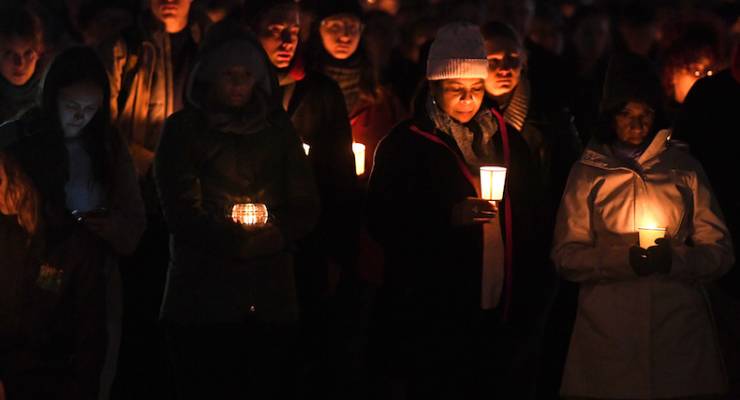
When the core of your job description is “fixing” gender inequality, you’re never short of work. And although I am by nature a positive person, it’s easy to feel overwhelmed by case after case of men’s violence against women, and the everyday examples of harassment and disrespect.
But as I look back over the past year, as much as there have been some appalling examples of gendered violence and disrespect, it’s good to remind ourselves that around Australia there has been some progress and there are reasons to be optimistic.
The wins
Family violence leave legislated
This year legal changes came into effect that mean all Australian workers (including part-time and casual employees) are entitled to five days unpaid family and domestic violence leave each year. This is a significant recognition that victims of this violence need time off work to attend court dates and legal appointments and take care of the practical challenges that can be involved, such as moving house and liaising with other supports. It’s a small but welcome support for women at an extremely difficult time in their lives.
Recognising women’s achievements
For the past few years many people have criticised awards such as the Australian of the Year, for celebrating fewer women than men. This year, for the first time, we saw equal numbers of women and men nominated for Australian of the Year awards. The award was deservedly won by Professor Michelle Simmons, one of the world’s top scientists. Simmons will be a great role model for girls and young women considering a career in this male-dominated field.
Calling out sexist bullies in Parliament
Greens Senator Sarah Hanson-Young has led this charge but over the past year she has been one of many women in Parliament to name and shame those who use sexist bullying as a political tactic and a cheap bid to grab attention. Parliament is a workplace like any other and everyone there has the right to feel safe and respected and to get on with their jobs without sexism and disrespect. The Parliament has been firmly put on notice.
Narrowing the gender pay gap
The gender pay gap in Australia has fallen to the lowest it has been for 20 years, at 14.6%. This is still far too high, but we are finally moving in the right direction, as more workplaces put in place the structures and practices that help address this gap.
There is still much more to be done, particularly to address the issue of female-dominated occupations and industries being significantly undervalued and underpaid. We also need to make sure the gap is narrowing for all women — not just highly-educated women in corporate or professional roles.
Axing the tampon tax
Menstruation is not a luxury or a choice, it’s a normal, healthy bodily function for half of the population. After an 18-year-long campaign by activists, all of Australia’s states and territories unanimously agreed to remove the GST on sanitary items. The tax will officially go on January 1, 2019. It’s a small but long overdue win.
The losses
At Our Watch we work across the community — with sporting codes, workplaces, schools, the media and others — to address those structures, norms and practices that can lead to violence against women. We know, from the best national and international research, that gender inequality and disrespect for women are the key drivers of violence against women.
Here, sadly, is the main reason we’ll all be back at work doing everything we can to challenge gender inequality in 2019:
The death toll keeps rising
So far this year 68 women have been killed — almost all by men, most often partners or ex-partners. This is at least 10 more than for the same time last year.
For each of these women whose lives have been taken, thousands more are injured and hospitalised, and thousands are living with abuse, violence and fear in their own homes, most often from current or former male partners. Rates of violence are even higher for Aboriginal and Torres Strait Islander women, who face greater barriers to accessing appropriate crisis and support services. There is also growing evidence that women with disabilities are more likely to experience violence.
There is no doubt that violence against women in Australia is a national emergency, one that needs both urgent and sustained action.
Patty Kinnersly is CEO of Our Watch, the national organisation to prevent violence against women and their children.







There is cause to dispair for women in Australia. Appalling violence stats. Disgraceful board and CEO numbers. Indefensible parliamentary representation rates. If any further examples are needed to call out a sexist leaning abroad in this country, you’re probably just sexist.